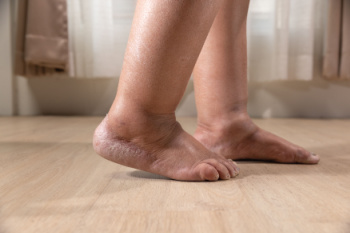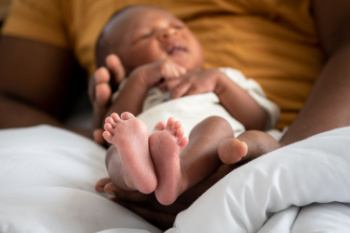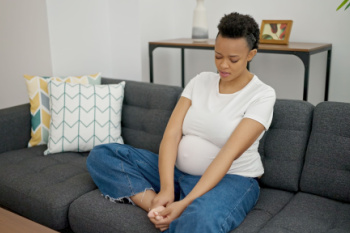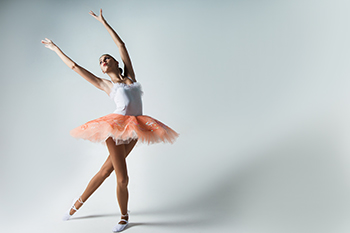
 (732) 246-1377
(732) 246-1377
 (732) 246-1377
(732) 246-1377

Swollen feet and ankles are a common issue with a variety of causes. Injuries such as sprains or fractures can lead to immediate swelling due to tissue damage and inflammation. Diseases, including heart, liver, or kidney problems, can cause fluid retention, leading to swelling in the feet and ankles. Infections, especially in individuals with diabetes or compromised immune systems, can also result in swelling in these areas. Certain medications, such as those for blood pressure or hormonal therapy, can cause fluid retention and swelling as a side effect. Pregnancy often leads to swollen feet due to increased body fluid and pressure from the growing uterus. Edema, the medical term for fluid buildup in tissues, can be caused by prolonged standing, sitting, or underlying health conditions. If your feet or ankles have become swollen, it is suggested that you visit a podiatrist who can determine what the reason is, and offer appropriate treatment remedies.
Swollen feet can be a sign of an underlying condition. If you have any concerns, contact one of our podiatrists of Livingston Footcare. Our doctors can provide the care you need to keep you pain-free and on your feet.
Swollen feet are a common ailment among pregnant women and people who stand or sit for extended periods. Aging may increase the possibility of swollen feet and patients who are obese often notice when their feet are swelling too. There may be medical reasons why swollen feet occur:
Swollen feet can also be caused by bone and tendon conditions, including fractures, arthritis, and tendinitis. Additionally, there may be skin and toenail conditions and an infection may cause the feet to swell. Patients who take medicine to treat high blood pressure may be prone to getting swollen feet.
Many patients elevate their feet to help relieve the swelling and this is generally a temporary remedy. When a podiatrist is consulted the reason behind the swelling can be uncovered and subsequently treated.
If you have any questions please feel free to contact our office located in North Brunswick, NJ . We offer the newest diagnostic tools and technology to treat your foot and ankle needs.
There are many reasons why patients experience swelling of the feet. It is rather common and may be a side effect of pregnancy or from sitting and standing for most of the day. Gravity could also play a role in the development of swollen feet. It is known that the weight of blood volume in our bodies is exerted on the veins in the legs and feet. The veins may not work as efficiently during the aging process, and this could make the blood flow backward causing swollen feet. Relief may be found when obese patients lose weight, and it may help to engage in compression therapy by wearing compression socks, stockings, or athletic sleeves. This method can release pressure on the feet and ankles which may help to reduce existing swelling. There are patients who have controlled their swollen feet by implementing healthy lifestyle changes. These can consist of reducing salt intake, incorporating a gentle exercise regime into the daily routine, and drinking plenty of fresh water. Swollen feet may be a temporary condition that affects people who travel via airplane or automobile, so it is beneficial to walk as frequently as possible even though it can be difficult. Swelling of the feet can also be indicative of other health issues so it is important to pay attention to any type of chest pain, mental confusion, dizziness, or fever. If you consistently have swollen feet, it is strongly suggested that you consult with a podiatrist who can help determine the cause and how to effectively treat it.
 Newborn foot care is essential for ensuring proper development and identifying any abnormalities early. Immediately after birth, a thorough examination of the newborn's feet is conducted by healthcare professionals. This examination includes assessing the shape, size, and position of the feet and checking for movement, reflexes, and the presence of any deformities. Common abnormalities detected during this examination include clubfoot, where the foot is twisted out of shape or position, and flexible flatfoot, where the arch of the foot is not developed. Early detection allows for prompt intervention, which may include stretching exercises, casting, or, in severe cases, surgical correction. Proper foot care, including keeping the feet clean and dry, avoiding tight footwear, and monitoring for any changes, is essential for newborns. If you have any concerns about your newborn’s foot health, it is suggested that you schedule an appointment with a podiatrist to discuss appropriate care and treatment options.
Newborn foot care is essential for ensuring proper development and identifying any abnormalities early. Immediately after birth, a thorough examination of the newborn's feet is conducted by healthcare professionals. This examination includes assessing the shape, size, and position of the feet and checking for movement, reflexes, and the presence of any deformities. Common abnormalities detected during this examination include clubfoot, where the foot is twisted out of shape or position, and flexible flatfoot, where the arch of the foot is not developed. Early detection allows for prompt intervention, which may include stretching exercises, casting, or, in severe cases, surgical correction. Proper foot care, including keeping the feet clean and dry, avoiding tight footwear, and monitoring for any changes, is essential for newborns. If you have any concerns about your newborn’s foot health, it is suggested that you schedule an appointment with a podiatrist to discuss appropriate care and treatment options.
Making sure that your children maintain good foot health is very important as they grow. If you have any questions, contact one of our podiatrists of Livingston Footcare. Our doctors can provide the care you need to keep you pain-free and on your feet.
Keeping Children's Feet Healthy
Having healthy feet during childhood can help prevent medical problems later in life, namely in the back and legs. As children grow, their feet require different types of care. Here are some things to consider...
Although babies do not walk yet, it is still very important to take care of their feet.
Avoid putting tight shoes or socks on his or her feet.
Allow the baby to stretch and kick his or her feet to feel comfortable.
As a toddler, kids are now on the move and begin to develop differently. At this age, toddlers are getting a feel for walking, so don’t be alarmed if your toddler is unsteady or ‘walks funny’.
As your child gets older, it is important to teach them how to take care of their feet.
Show them proper hygiene to prevent infections such as fungus.
Be watchful for any pain or injury.
Have all injuries checked by a doctor as soon as possible.
Comfortable, protective shoes should always be worn, especially at play.
If you have any questions please feel free to contact our office located in North Brunswick, NJ . We offer the newest diagnostic and treatment technologies for all your foot and ankle needs.
Being a parent involves caring for your child in every way you can. You make sure they are eating the right food, being nice to others, and staying out of any trouble. However, it is also important that you are watchful of their health, more specifically their foot health. Maintaining good foot health in childhood is important in preventing later conditions in life from happening. As children continue to develop, their feet require different techniques of care. Here are some various ways in which you can help your child’s feet stay healthy.
A baby needs a lot of care and attention overall, but the importance of their feet should never be forgotten. Before a baby turns one, their feet change and develop greatly. It is important that during this time, a mother avoids putting tight socks on their child. She should also encourage movement of their feet so the baby can begin to feel more comfortable using them.
As a baby enters the toddler years of his or her life, they are begin to walk around. When your baby begins to take those first steps, it is crucial that they are wearing protective shoes on their feet. As a mother that is observant of your child’s feet, you may notice changes in them. This is completely normal as the feet are becoming susceptible to the activity of walking. It is normal for a toddler to be a bit unsteady or to “walk funny” at first.
When your child grows out of their toddler years, it is important that you begin to show him or her how to care for their feet on their own. Practice with your child proper hygiene in order to prevent foot fungus or infection. Since children are constantly on the move, it is crucial to be cautious of any accidents or injuries that might occur. If an injury occurs, it is advised that you take your child to be examined by a doctor immediately. Since your child is still growing, particular injuries can shift the way in which a bone or other important part of the foot is developing.
Babies and kids are always changing and growing. Your job as a parent is to make sure they stay healthy and making sure they are properly maintained. This involves proper foot care and making sure the feet stay healthy. Following this guide, your child can live a long and happy life.

Pregnancy brings numerous changes to a woman's body, often leading to foot problems. One of the most common issues is flat feet, or overpronation, where increased body weight causes the foot arch to flatten and the feet to roll inward. This can result in pain and additional strain on the feet, calves, and back. Wearing supportive footwear and using orthotics can help alleviate this discomfort. Swelling, or edema, typical in the second or third trimester, results from increased blood volume and pressure, leading to water retention in the legs and feet. Regular movement, elevating the feet, staying hydrated, and reducing salt intake can help reduce swelling. Pregnant women are also prone to developing ingrown toenails due to changes in foot size and shape, often worsened by tighter shoes. Soaking feet in salt water and having toenails properly trimmed can offer relief. Additionally, some women experience hot or burning sensations in their feet due to hormonal changes and increased body temperature. Cracked heels might develop from the added weight and posture changes that cause dry skin and heel expansion. Moisturizing and wearing comfortable shoes can prevent and treat these cracks. If you are experiencing foot pain during pregnancy, it is suggested that you schedule an appointment with a podiatrist for an exam and appropriate treatment.
Pregnant women with swollen feet can be treated with a variety of different methods that are readily available. For more information about other cures for swollen feet during pregnancy, consult with one of our podiatrists from Livingston Footcare. Our doctors will attend to all of your foot and ankle needs.
What Foot Problems Can Arise During Pregnancy?
One problem that can occur is overpronation, which occurs when the arch of the foot flattens and tends to roll inward. This can cause pain and discomfort in your heels while you’re walking or even just standing up, trying to support your baby.
Another problem is edema, or swelling in the extremities. This often affects the feet during pregnancy but tends to occur in the later stages.
How Can I Keep My Feet Healthy During Pregnancy?
If you have any questions please feel free to contact our office located in North Brunswick, NJ . We offer the newest diagnostic and treatment technologies for all your foot and ankle needs.
The natural weight that pregnant women gain causes their center of gravity to be completely altered. This causes them to have a new weight-bearing stance which adds pressure to the knees and feet. As a result, pregnant women often experience severe foot pain. The two most common foot issues experienced by women in their pregnancies are edema and over-pronation. It is important for all pregnant women to learn more about how to take care of their feet so they are more comfortable during their pregnancy.
Over-pronation, which is commonly referred to as flat feet, is caused when a person’s arch flattens out upon weight bearing. This causes the person’s feet to roll inward while walking. Pregnant women often experience this due to the sudden weight they gain.
Edema, also referred as swelling in the feet, typically occurs in the later part of the pregnancy. It is the result of the extra blood accumulated in the pregnant woman’s body. The enlarged uterus puts more pressure on the blood vessels in the pelvis which causes leg circulation to slow down. This causes blood to pool in the lower extremities.
Fortunately, there are ways to treat both edema and over-pronation. Edema can be treated by elevating the foot as often as possible. Wearing proper fitting footwear will also be helpful for those with edema. A treatment method for over-pronation could be orthotics. Orthotic inserts should be designed with appropriate arch support and medial rear foot for your foot.
It is best for pregnant women to buy new shoes during the day, because this is the time where swelling is at its peak. Pregnant women also shouldn’t rush when buying shoes. It is always advised that you make sure your shoes fit properly but this is especially important during pregnancy.
If you are a pregnant woman, you should consult with a podiatrist in order to make sure your feet are healthy throughout the entirety of your pregnancy.
 Achilles tendinopathy is a condition characterized by pain, swelling, and stiffness in the Achilles tendon, which connects the calf muscles to the heel bone. This condition often results from overuse, particularly in athletes and individuals who engage in repetitive activities such as running or jumping. It can also arise from a sudden increase in physical activity, wearing poor footwear, or biomechanical issues like flat feet. The pain associated with Achilles tendinopathy usually starts as a mild ache above the heel or in the back of the leg, worsening with activity. The condition can range from mild inflammation to more severe degeneration of the tendon fibers. Diagnosis typically involves a physical examination and imaging tests, such as ultrasound or MRI scans to assess the extent of the damage. Treatment options include rest, targeted exercises, and nonsteroidal anti-inflammatory drugs. In severe cases, surgery may be required to repair the tendon. Preventative measures include proper warm-up routines, wearing appropriate footwear, and gradually increasing the intensity of physical activity. If you experience symptoms of Achilles tendinopathy, it is suggested that you schedule an appointment to see a podiatrist for an accurate diagnosis and effective treatment plan.
Achilles tendinopathy is a condition characterized by pain, swelling, and stiffness in the Achilles tendon, which connects the calf muscles to the heel bone. This condition often results from overuse, particularly in athletes and individuals who engage in repetitive activities such as running or jumping. It can also arise from a sudden increase in physical activity, wearing poor footwear, or biomechanical issues like flat feet. The pain associated with Achilles tendinopathy usually starts as a mild ache above the heel or in the back of the leg, worsening with activity. The condition can range from mild inflammation to more severe degeneration of the tendon fibers. Diagnosis typically involves a physical examination and imaging tests, such as ultrasound or MRI scans to assess the extent of the damage. Treatment options include rest, targeted exercises, and nonsteroidal anti-inflammatory drugs. In severe cases, surgery may be required to repair the tendon. Preventative measures include proper warm-up routines, wearing appropriate footwear, and gradually increasing the intensity of physical activity. If you experience symptoms of Achilles tendinopathy, it is suggested that you schedule an appointment to see a podiatrist for an accurate diagnosis and effective treatment plan.
Achilles tendon injuries need immediate attention to avoid future complications. If you have any concerns, contact one of our podiatrists of Livingston Footcare. Our doctors can provide the care you need to keep you pain-free and on your feet.
What Is the Achilles Tendon?
The Achilles tendon is a tendon that connects the lower leg muscles and calf to the heel of the foot. It is the strongest tendon in the human body and is essential for making movement possible. Because this tendon is such an integral part of the body, any injuries to it can create immense difficulties and should immediately be presented to a doctor.
What Are the Symptoms of an Achilles Tendon Injury?
There are various types of injuries that can affect the Achilles tendon. The two most common injuries are Achilles tendinitis and ruptures of the tendon.
Achilles Tendinitis Symptoms
Rupture Symptoms
Treatment and Prevention
Achilles tendon injuries are diagnosed by a thorough physical evaluation, which can include an MRI. Treatment involves rest, physical therapy, and in some cases, surgery. However, various preventative measures can be taken to avoid these injuries, such as:
If you have any questions please feel free to contact our office located in North Brunswick, NJ . We offer the newest diagnostic tools and technology to treat your foot and ankle needs.
The Achilles tendon is the strongest tendon in the human body. Its purpose is to connect the lower leg muscles and calf to the heel of the foot. This tendon is responsible for facilitating all types of movement, like walking and running. This tendon provides an enormous amount of mobility for the body. Any injuries inflicted to this tissue should be immediately brought up with a physician to prevent further damage.
The most common injuries that can trouble the Achilles tendon are tendon ruptures and Achilles tendinitis. Achilles tendinitis is the milder of the two injuries. It can be recognized by the following symptoms: inflammation, dull-to-severe pain, increased blood flow to the tendon, thickening of the tendon, and slower movement time. Tendinitis can be treated via several methods and is often diagnosed by an MRI.
An Achilles tendon rupture is trickier to heal, and is by far the most painful injury. It is caused by the tendon ripping or completely snapping. The results are immediate and absolutely devastating, and will render the patient immobile. If a rupture or tear occurs, operative and non-operative methods are available. Once the treatment begins, depending on the severity of the injury, recovery time for these types of issues can take up to a year.
Simple preventative measures can be taken as a means to avoid both injuries. Prior to any movement, taking a few minutes to stretch out the tendon is a great way to stimulate the tissue. Calf raises, squats, leg curls, leg extensions, leg raises, lunges, and leg presses are all suggested ways to help strengthen the lower legs and promote Achilles tendon health.
Many problems arise among athletes and people who overexert themselves while exercising. Problems can also happen among those who do not warm up properly before beginning an activity. Proper, comfortable shoes that fit correctly can also decrease tendon injuries. Some professionals also suggest that when exercising, you should make sure that the floor you are on is cushioned or has a mat. This will relieve pressure on the heels. A healthy diet will also increase tendon health.
It is very important to seek out a podiatrist if you believe you have an injury in the Achilles region. Further damage could result in severe complications that would make being mobile difficult, if not impossible.

Ballerinas often face various foot injuries due to the intense demands of ballet. One common injury is the stress fracture, resulting from repetitive impact and overuse, particularly in the metatarsal bones. Tendonitis, especially affecting the Achilles tendon, occurs from overextension and strain during jumps and pointe work. Blisters and calluses develop from friction against tight-fitting ballet shoes. Additionally, sprained ankles are frequent due to the constant balancing and quick directional changes. Sesamoiditis, an inflammation of the small bones beneath the big toe, is another injury caused by the pressure of pointe work. Plantar fasciitis, characterized by heel pain, results from excessive strain on the arch of the foot. These injuries highlight the physical challenges ballerinas face, emphasizing the importance of proper technique, conditioning, and foot care in their training. Foot pain can temporarily stop a dancer’s movements. If this applies to you, it is suggested that you confer with a podiatrist who can provide you with relief and treatment methods.
Foot Pain
Foot pain can be extremely painful and debilitating. If you have a foot pain, consult with one of our podiatrists from Livingston Footcare. Our doctors will assess your condition and provide you with quality foot and ankle treatment.
Causes
Foot pain is a very broad condition that could be caused by one or more ailments. The most common include:
Diagnosis
To figure out the cause of foot pain, podiatrists utilize several different methods. This can range from simple visual inspections and sensation tests to X-rays and MRI scans. Prior medical history, family medical history, and any recent physical traumatic events will all be taken into consideration for a proper diagnosis.
Treatment
Treatment depends upon the cause of the foot pain. Whether it is resting, staying off the foot, or having surgery; podiatrists have a number of treatment options available for foot pain.
If you have any questions, please feel free to contact our office located in North Brunswick, NJ . We offer the newest diagnostic and treatment technologies for all your foot care needs.